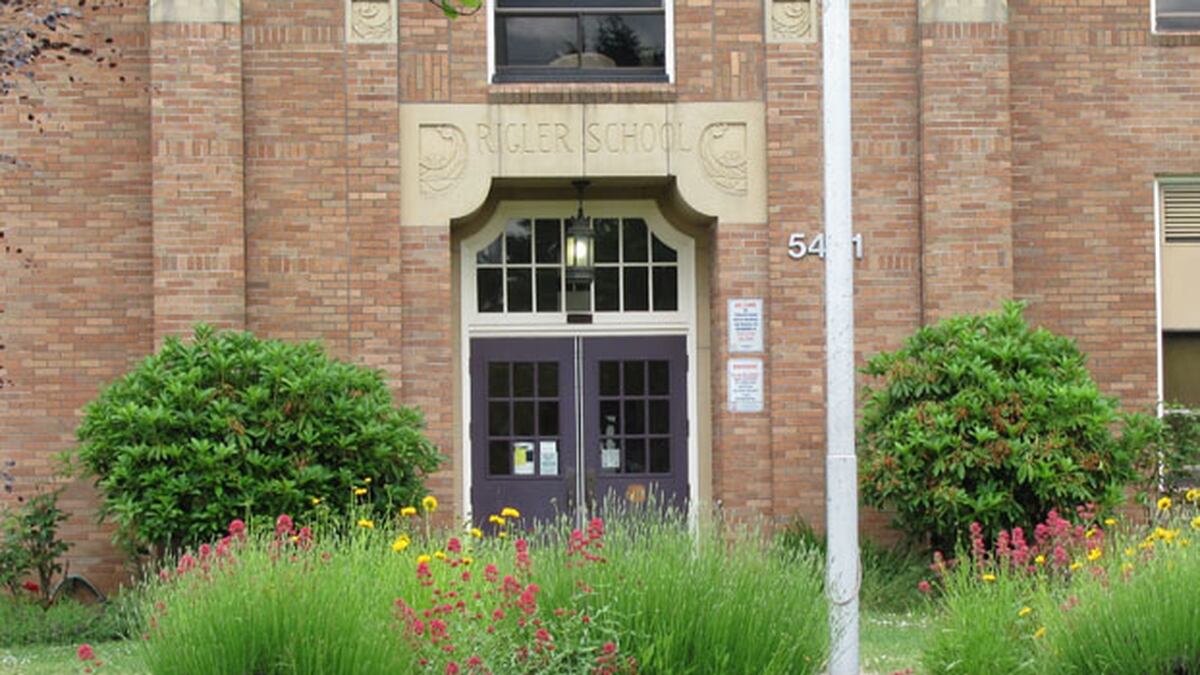Correction, 11 am Wednesday, Feb. 25: The principal of Rigler Elementary School, TJ Fuller, now says only 26 students live in the Normandy Apartments, not 40. That amounts to more than 5 percent of the student body, not 8 percent. The story has been corrected with that factual change.
A rent increase at an 18-unit apartment complex in Northeast Portland could force an unwanted move for more than 5 percent of the student body at a nearby elementary school.
Residents at the Normandy Apartments on Northeast Killingsworth Street are facing rent increases of more than 100 percent after the building was sold late last year.
The rent increase—from $600 to $1,250, according to one notice shared with WW—is substantial on its own, but its impacts will be felt far wider than the families forced to move.
In all, 26 students at Rigler Elementary School live at the Normandy Apartments, says school principal TJ Fuller. The 26 students represent more than 8 percent of the student body.
The result will be felt around the school. There will be budget cuts amounting to two fewer teachers next fall, Fuller says. (In education, funding generally follows students.)
"My feeling is that it's an eviction not just from their home but also from Portland," says Fuller, saying about 15 other Rigler students have been forced to move so far this school year.
Rigler has a dual-language Spanish program, and most of the families affected are Hispanic or Latino, Fuller says.
"The dual-language program best suits their needs and honors their culture," he says. "It's one of the most vulnerable communities."
Teachers and administrators wanted to help the families, so Fuller wrote the Portland Housing Bureau about the rent increases. He was under the impression that laws limited how much landlords could hike the rent.
The response from the city was dispiriting.
"I am truly sorry to hear of this all-too-common situation," wrote Karl Dinkelspiel, senior program manager. "Currently, landlords/property managers are free to raise rents up to whatever amount the market will bear."
State law, in fact, prohibits any kind of limits on rent increases. Rent control is illegal in Oregon, although that ban is expected to be the subject of heated debate in this year's legislative session.
An official with the property management company, First Class Property Management, declined to discuss the specifics of the rent increase, but defended the decision.
"We're trying to be compassionate to the people who live there," says Tom Minnaert. "Our goal is to rehab all the units, because they're not in very good shape. Our intention is to get them up to a decent, livable condition. We want to keep as many people as we can there, but the owner would also like to get market rent for the property."
Minneart noted that some families have asked to stay.
But the rent increase set off alarm bells in the Cully neighborhood, not just for the families involved.
"It's part of a very disturbing trends of rents going through the roofs and investors buying up properties with the intention of pushing out people who live here now," says Cameron Herrington of Living Cully.

